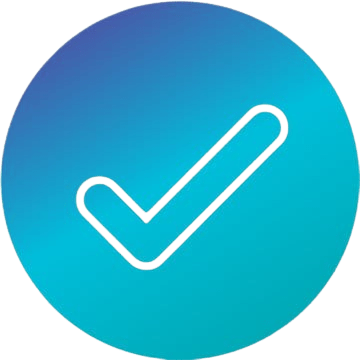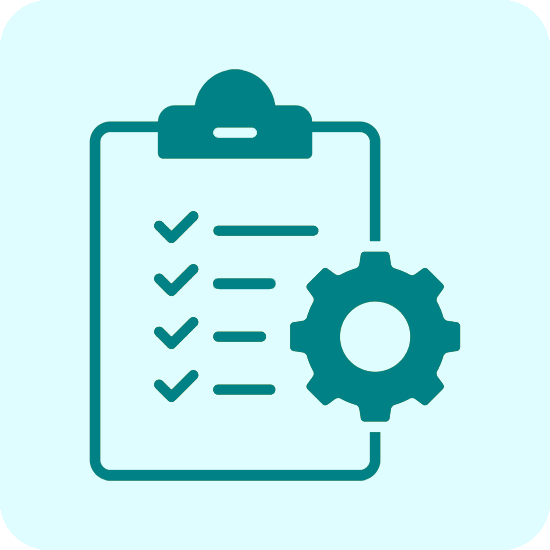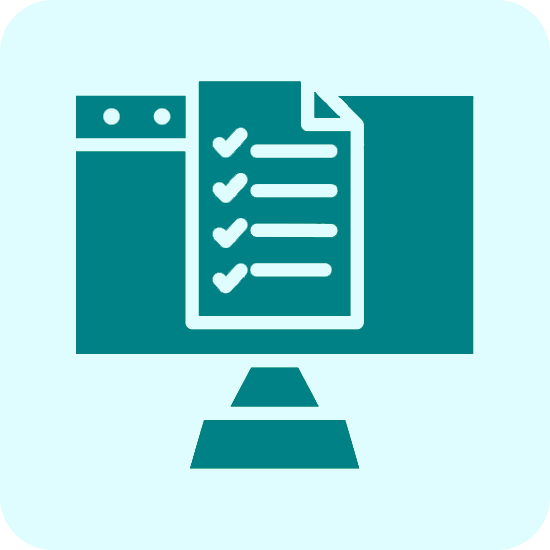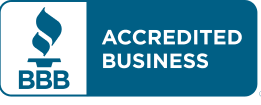Streamlined Hospital Credentialing With Tech & Documentation
Streamline the complex credentialing process with expert guidance tailored for physicians.

- Benefits: Fast And Hassle-Free Process
Convinient Hospital Credentialing Services for US Physicians


Simplified Hospital Credentialing Services for Physicians by State

Physician Hospital Credentialing Process, MLC Helps
How Does The Hospital Credentialing Process Work During Medical Licensing Process?

Application Submission
Submit your initial application to the hospital.

Verification Of Credentials
Review licenses, certifications, and qualifications.

Primary Source Verification
Validate documents with issuing authorities.

Peer References
Gather professional recommendations.

Committee Review
Hospital committee evaluates physician's credentials.

Approval
Final clearance is granted for practice to qualifying physicians

Credentialing Company For Physicians
Requires Following Documents For A Smooth Physician Hospital Credentialing Process
Completed Application Forms
Ensure that your application form is fully filled out, accurate, and up-to-date. Missing or incorrect information can cause delays.
Curriculum Vitae (CV)
A comprehensive CV detailing your educational background, work experience, certifications, and professional affiliations is crucial.
Medical Licenses And Board Certifications
Provide copies of all current medical licenses and specialty board certifications to validate your qualifications.
Graduate Medical Education Diplomas
Include diplomas from medical school, residency, and fellowship programs as proof of your training.
DEA Certificate And Malpractice Insurance
Submit your DEA certificate and proof of active malpractice insurance to verify prescribing eligibility and coverage.
Clinical Privileges Documentation
1Provide a record of current and past clinical privileges to demonstrate your scope of practice and experience.
Peer References: Your Credibility Champions
Collect and submit letters of recommendation or peer reviews from colleagues attesting to your clinical competence and professionalism.
CME Credits & Background Check Consent
Provide CME proof to highlight ongoing learning and consent for background checks.
Disciplinary Action Records
Provide a record of current and past clinical privileges to demonstrate your scope of practice and experience.
Why Medical Licensing Matters
Physician licensing is more than a formality; it upholds the highest standards of medical practice, ensuring safety, quality care, and legal compliance.

Ensures Public Health And Safety
Licensing verifies that physicians meet rigorous educational and ethical standards, safeguarding patient welfare

Consequences Of Non-Compliance
Practicing without proper licensing can lead to legal penalties, loss of credibility, and risks to public safety. This is especially relevant when tied to the Physician Hospital Credentialing Process, which further validates a physician’s qualifications for clinical practice within healthcare institutions.

State-Specific Requirements
Streamline your renewal process, allowing you to dedicate more time to patient care. A reliable Credentialing Company for Physicians can help you understand each state’s requirements and meet them efficiently.

Builds Patient Trust
A valid license reassures patients that their physician is qualified, competent, and committed to delivering high-quality care. An accurate and up-to-date Physician Hospital Credentialing Process strengthens this trust by ensuring hospitals only grant privileges to vetted professionals.
MedLicense Coverage Advantage
A Physicians’ Founded Credentialing Company For Physicians

Expert Guidance For All States
Benefit from tailored advice and in-depth knowledge of state-specific licensing requirements to simplify your physician licensure journey, no matter where you practice

Document Preparation & Verification
Ensure your application is flawless with meticulous document preparation and thorough credential validation, avoiding costly errors or delays to value your time as a physician.

Application Submission Support
Navigate the submission process with ease. We provide step-by-step support to ensure your application is complete, accurate, and submitted on time.

License Renewal Tracking
Stay compliant effortlessly with proactive tracking of renewal deadlines, ensuring uninterrupted practice with minimal effort on your part.

CME Compliance Monitoring
Simplify continuing education requirements with tracking tools and reminders, so you can maintain your physician license without added stress.

Personalized Support And Consultation
Receive dedicated one-on-one support from experienced licensing experts and other physicians who are available to answer your questions and provide guidance throughout your journey — including navigating the Physician Hospital Credentialing Process seamlessly.
What Our Clients Say
Seamless and Efficient
I wanted to express my gratitude for the exceptional licensing services provided by your team. From start to finish, the process was seamless and efficient. The attention to detail and personalized support truly set your service apart. I am confident that the launch of "MedlicenseCoverage- MLC will help a lot of busy physicians like me. Once again thank you for your outstanding service.
Exceptional Service
I am pleased to provide my recommendation for the exceptional service provided by MedLicenseCoverage in assisting me with obtaining my medical license. Their expertise and efficiency made the entire process seamless and stress-free. From start to finish, their team exhibited professionalism and dedication, ensuring a swift outcome. I highly recommend MedLicenseCoverage to any healthcare professional in need of licensing assistance.
Recommended
From start to finish...a exceptional service for professional medical licensing and credentialing. Reliable, Responsive and Recommended
Physician Literature
Articles from MedLicense Coverage team for physicians to explore and share their insights & inputs.
Credentialing Questions, Answered
Relevant queries proactively addressed to assist the physicians.

Still Have Questions?
Reach out to our friendly team comprising of physicians.
1. What is medical credentialing, and why is it important?
Medical credentialing is the process of verifying a healthcare provider’s qualifications, including education, training, licensure, experience, and professional standing. It ensures that a physician or other medical professional meets the necessary standards to provide care.
Importance of Medical Credentialing:
- Patient Safety: Ensures that medical professionals are properly trained, licensed, and qualified.
- Compliance: Meets regulatory and accreditation requirements for healthcare organizations and insurers.
- Insurance Contracting: Providers must be credentialed to participate in insurance networks and receive reimbursement.
- Reputation Management: Confirms a provider’s qualifications, enhancing their credibility and reputation in the healthcare industry.
- Risk Management: Reduces the risk of malpractice or other legal issues by confirming the provider’s qualifications.
Credentialing is crucial for maintaining high standards of care, trust, and compliance within the healthcare system.
2. How long does the credentialing process take?
The medical credentialing process typically takes 3 to 6 months, but it can vary depending on several factors:
- Completeness of Documentation: Missing or incomplete documents can delay the process.
- Verification Time: Verifying education, training, licensure, and background checks can take time.
- Insurance Networks: Some insurance companies may take longer to approve credentialing applications.
- State Requirements: Different states may have varying processes and timelines.
Starting early and ensuring all required documentation is accurate and complete can help expedite the process.
3. What documents are required for credentialing?
For medical credentialing, the following documents are typically required:
- Application Form: Completed credentialing application, often provided by the healthcare facility or insurer.
- Medical Degree: Copy of your medical school diploma.
- Residency Completion Certificate: Proof of completed residency or fellowship training.
- Board Certification (if applicable): Documentation of board certification or eligibility.
- License: Copy of your current, valid medical license(s).
- Malpractice Insurance: Proof of malpractice insurance coverage.
- Work History: Employment or practice history, including dates and roles.
- CME Documentation: Proof of Continuing Medical Education (CME) credits, if required.
- Criminal Background Check: Fingerprint or criminal history report, as required.
- References: Letters of recommendation from colleagues or supervisors.
State or facility-specific requirements may also apply, so it’s important to check with the organization requesting the credentialing.
4. Can you help with re-credentialing?
Yes, we can help with re-credentialing by:
- Managing Documents: Organizing necessary documents like licenses, certifications, and CME.
- Submitting Applications: Completing and submitting re-credentialing forms.
- Tracking Deadlines: Ensuring timely submission to avoid lapses.
- Ensuring Compliance: Meeting state, insurer, and facility requirements.
- Coordinating with Insurers: Facilitating communication with insurance providers.
- Following Up: Monitoring progress and resolving issues.
This streamlines the process and ensures timely, compliant re-credentialing.
5. Want to know more about hospital credentialing.?
Understanding Hospital Credentialing & Its Importance
What is Hospital Credentialing?
- Hospital credentialing is the process of verifying a physician’s qualifications, including:
- Medical education & training (MD/DO degree, residency, fellowship)
- State medical licenses (active and unrestricted)
- Board certifications (e.g., ABMS, AOA)
- Work history & malpractice claims
- Professional references
- Background checks (criminal record, NPDB reports)
- Hospital privileges & affiliations
Why is Credentialing Important?
- Ensures compliance with state laws & hospital policies.
- Required for hospital privileges and insurance reimbursements.
- Maintains patient safety & care quality.
How a Medical License Service Provider Assists in Hospital Credentialing
Multi-State License Management
Assists physicians in obtaining and maintaining active licenses in multiple states.
Uses FSMB (Federation of State Medical Boards) Uniform Application or IMLC (Interstate Medical Licensure Compact) for expedited licensing.
Tracks renewals, CME compliance, and reinstatements to prevent delays in hospital credentialing.
Primary Source Verification (PSV) Coordination
- Contacts medical schools, residency programs, and licensing boards to obtain official transcripts and training verifications.
- Works with FSMB’s FCVS (Federation Credentials Verification Service) for pre-verified credentials.
- Verifies DEA registration, NPI number, and malpractice history.
Hospital Privileging Assistance
- Prepares and submits hospital privilege applications for multiple states.
- Tracks application status and follows up on missing documents.
- Ensures compliance with JCAHO (Joint Commission), NCQA, and CMS regulations.
Malpractice & Background Check Management
- Assists in obtaining malpractice insurance certificates.
- Manages National Practitioner Data Bank (NPDB) reports and criminal background checks.
Payer Enrollment & Insurance Credentialing
- Helps physicians enroll with Medicare, Medicaid, and private insurers.
- Ensures timely credentialing for insurance reimbursements.
Additional Benefits of Using a Medical License Service Provider for Credentialing
- Saves Time – Reduces processing delays by handling all paperwork.
- Ensures Compliance – Keeps track of state-specific and hospital-specific requirements.
- Reduces Errors – Avoids application mistakes that could lead to rejections.
Faster Hospital Privileges – Streamlines the verification process for quicker approval.
6. What Is Required for Hospital Credentialing by State?
Hospital credentialing by state mandates validated licenses, malpractice history, and education history. Each individual state remains unique, and each state has its own compliance policy and individual rules for credentialing approval for the healthcare provider. The links at the bottom of the page will provide further information about hospital credentialing by state. State-specific requirements, and details to ensure a smooth process for state approval.

Still have questions?
Can’t find the answer you’re looking for? Please chat to our friendly team.



